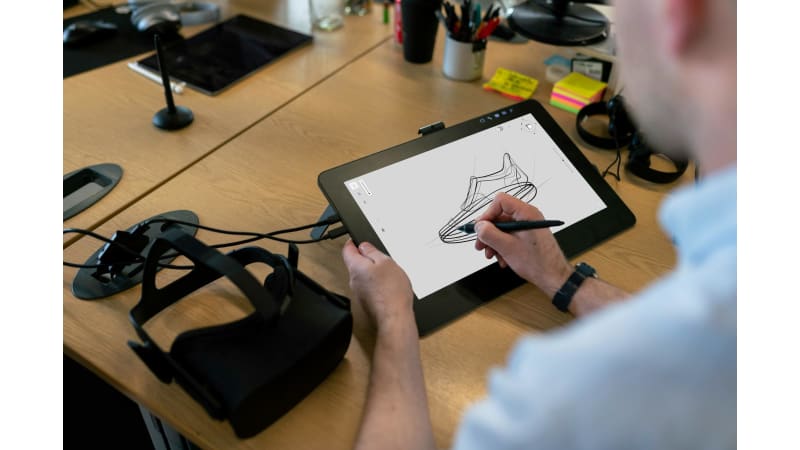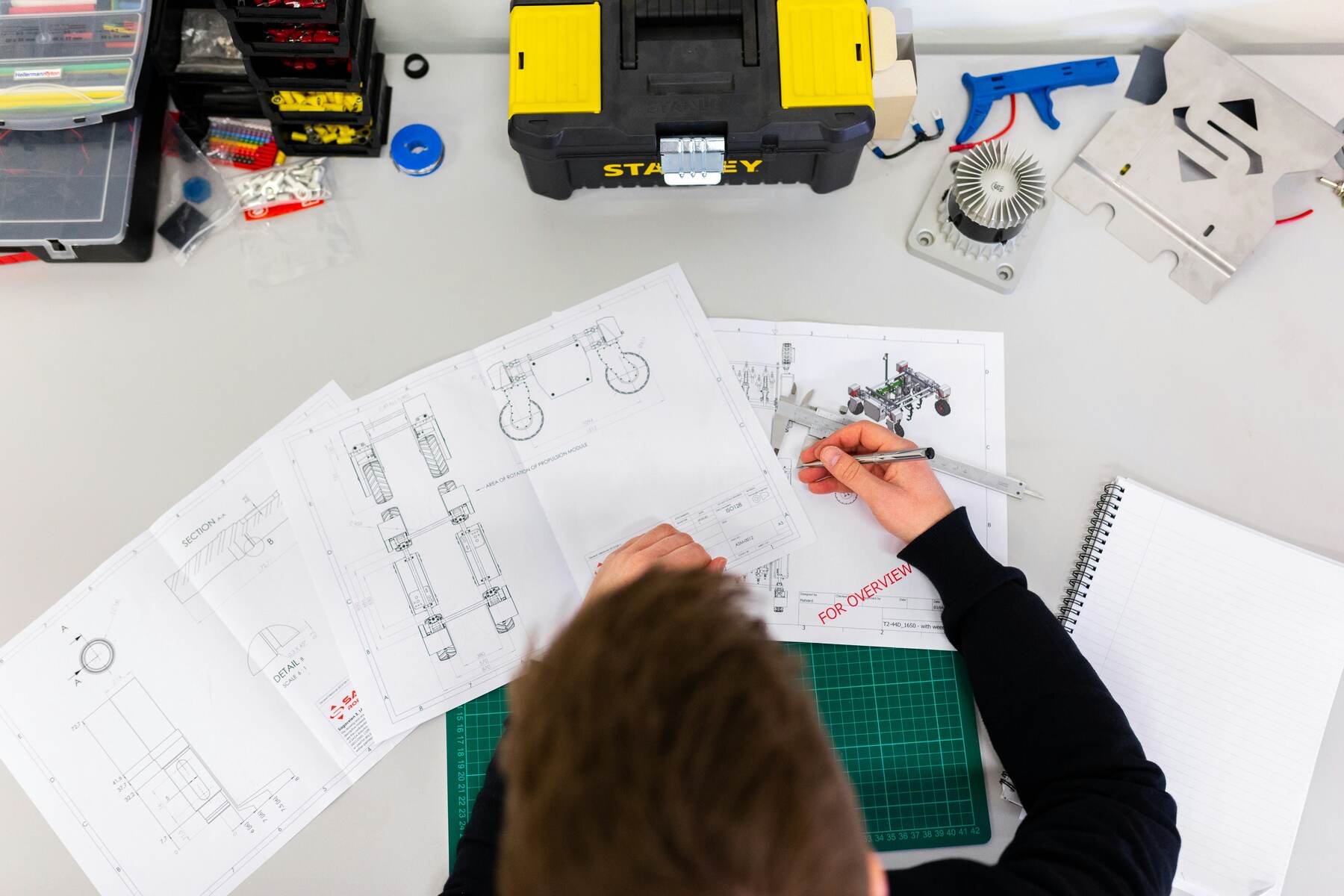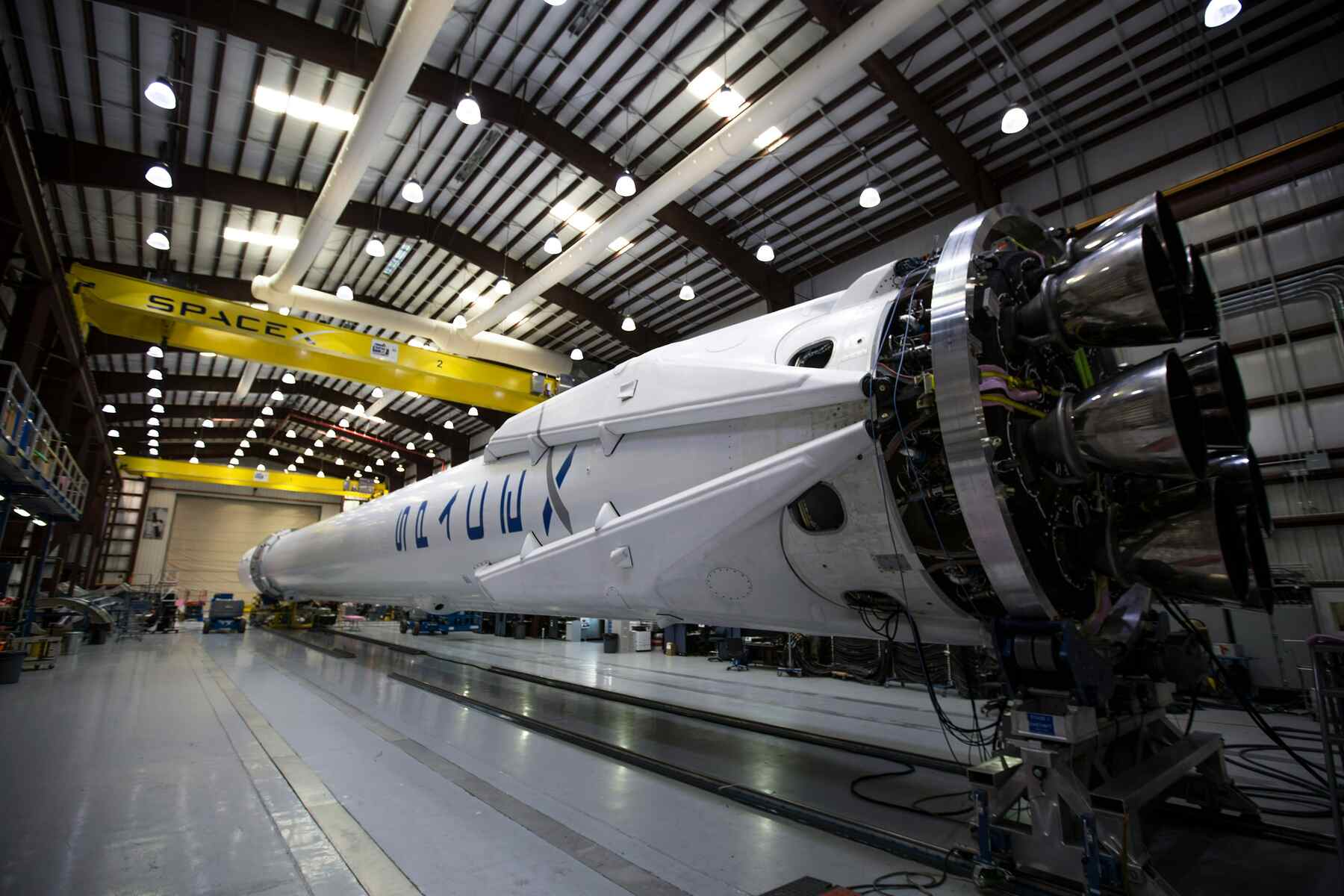8 Best Online Master’s in Aerospace Engineering

Key Takeaways
- An online master’s degree in aerospace engineering can lead to managerial roles, teaching positions, or acceptance into a PhD program.
- The BLS predicts a 6% growth employment growth in aerospace engineering over the next decade.
- Aerospace engineers earn an average salary of $116,500 per year, with managers earning $144,830 per year.
Best Online Master's in Aerospace Engineering in 2026
2025 Ranking Update
Our Influence Ranking Engine™ leverages machine learning to track the real-world influence of colleges and universities over time. Below you’ll see which schools gained or lost ground for the 2025 school year.
In 2025, the top schools in our ranking of the best online master’s in aerospace engineering remained fairly stable. The University of Florida gained two ranking positions as the university continues to enhance its online Master’s in Aerospace Engineering program through the Electronic Delivery of Gator Engineering (EDGE) platform. Recognized as a top 10 online public graduate engineering program by U.S. News & World Report in 2023, EDGE offers students access to the same esteemed faculty and rigorous curriculum as on-campus learners, ensuring a comprehensive and flexible educational experience.
For students and working engineers looking to advance their education and career in aerospace, online master’s programs offer flexibility and top-caliber instruction. However, discovering the right master’s program in aerospace engineering can be overwhelming.
So, we’ve researched and compiled a list of the best online masters in aerospace engineering that provide technical depth and specialization valued by employers in this innovative, fast-paced field.

Featured Programs
Best Online Masters In Aerospace Engineering
Let’s explore the top contenders in aerospace engineering education with these eight comprehensive online master’s programs.
- #11 50 Best Private Grad Schools 2025 #11 50 Best Private Colleges and Universities for Undergrads 2025 #11 50 Best Research Universities Ranked for Undergrads in 2024 #14 50 Best Colleges and Universities Ranked for Undergrads in 2026
Tuition + fees
$60K
Acceptance
7%
Graduation
94%
Student body
40K
Median SAT/ACT
1545/34
Career Outlook for Aerospace Engineering degree at Johns Hopkins University
Cost of Degree: $65,956Expenses: $22,725Starting Salary: $124,107Cost Recoup Time: 10 yearsPaid back at 15% of annual salaryJohns Hopkins University offers an exceptional Master’s in Space Systems Engineering program that delves into advanced aerospace concepts and cutting-edge research that equips students with the necessary skills and knowledge in the field. With a flexible online format, you can plan out your academic timeline and attend classes at your own pace.
- Total Credits: 30
- Program Duration: 1-2 years
- Sample Courses:
- Space Systems Cybersecurity
- Small Satellite Development and Experimentation
- Systems Engineering for Space
- Ground System Engineering and Mission Operations
- Spacecraft Avionics Systems
What we love about Johns Hopkins University:
Students who don’t meet the prerequisites are still given a chance to enroll and start the Master’s program while working on earning the needed course requirements.
Johns Hopkins University is ideal for students who:
Would like to expand their network by meeting and working with experienced engineers, scientists, and instructors.
Johns Hopkins University might not be the best fit for students who:
Are looking for programs with more affordable tuition costs.
- #1 15 Best Self-Paced Online Colleges Ranked for 2025 #5 50 Best Public Colleges and Universities Ranked for Students in 2025 #5 50 Best Public Grad Schools 2025 #5 Best Value Colleges and Universities Ranked for Students in 2025
Tuition + fees
$12K
Acceptance
48%
Graduation
84%
Student body
58K
Whether you’re passionate about aerodynamics or vehicle safety, the University of Washington offers an Aerospace Engineering Master’s that offers a wide range of concentration topics that will help you reach your career goals. With a streamlined online system, you’ll have the chance to download lecture materials and watch recorded lectures at times convenient to you.
- Total Credits: 30
- Program Duration: 3 years
- Sample Courses:
- Aerodynamics and Flight Mechanics
- Spacecraft Systems Engineering
- Satellite Communication Systems
- Aerospace Propulsion
- Structural Dynamics and Aeroelasticity
What we love about the University of Washington:
The program’s hybrid setup gives you the flexibility to complete the program online or attend on-campus discussions, depending on your availability and preference.
The University of Washington is ideal for students who:
Are working professionals or busy individuals since the program only has classes once a week.
The University of Washington might not be the best fit for students who:
Prefer a fully remote learning format and want to avoid any on-campus attendance.
- #7 Best Value Colleges and Universities Ranked for Students in 2025 #8 Top Schools that Offer Free Master's Degrees Online #8 50 Best Public Colleges and Universities Ranked for Students in 2025 #8 50 Best Public Grad Schools 2025
Tuition + fees
$21K
Acceptance
19%
Graduation
95%
Student body
29K
Median SAT/ACT
1470/33
Designed to equip students with the competencies to excel in the aerospace industry, the University of Virginia’s M.S. in Aerospace Engineering curriculum emphasizes theoretical applications and computational analysis. Here, you’ll have the flexibility to choose your topics through its topical, analytical math, and numerical courses.
- Total Credits: 30
- Program Duration: 2 years
- Sample Courses:
- Computational Fluid Dynamics
- Space Mission Analysis and Design
- Spacecraft Dynamics and Control
- Aerospace Structures and Materials
- Propulsion Systems
What we love about the University of Virginia:
The department shows its commitment to personalized mentorship by pairing each graduate student with a faculty advisor who will serve as their supervisor, research guide, and academic counselor.
The University of Virginia is ideal for students who:
Have taken graduate courses before or finished a Master’s degree in another field, which may be used as transfer credits to finish the aerospace engineering master’s quicker
The University of Virginia might not be the best fit for students who:
Have limited financial capabilities or are looking for a program with low tuition.
- #2 15 Best Self-Paced Online Colleges Ranked for 2025 #12 Best Value Colleges and Universities Ranked for Students in 2025 #18 50 Best Public Colleges and Universities Ranked for Students in 2025 #18 50 Best Public Grad Schools 2025
Tuition + fees
$18K
Acceptance
45%
Graduation
85%
Student body
62K
Median SAT/ACT
1415/31
With a comprehensive curriculum covering core areas such as aerodynamics, propulsion, and flight dynamics, the University of Illinois Urbana-Champaign’s Master’s program in Aerospace Engineering is perfect for aspiring aerospace engineers. The fully online curriculum comes with an array of specialized courses, ranging from aerodynamics to mechanics and aerospace systems.
- Total Credits: 32
- Program Duration: 2-5 years
- Sample Courses:
- Computational Aerodynamics
- Aircraft Flight Mechanics
- Aerospace System Engineering
- Rocket Propulsion
- Spacecraft Environment and Interactions
What we love about the University of Illinois Urbana-Champaign:
Connect with like-minded peers and start innovative projects through the school’s dynamic student organizations, such as the Illinois Space Society, Student Aircraft Builders, and Illinois Robotics in Space.
University of Illinois Urbana-Champaign is ideal for students who:
Prefer a wide range of specialization options and a flexible educational track.
University of Illinois Urbana-Champaign might not be the best fit for students who:
Are passionate about doing research and writing a thesis.
- #1 Most Affordable Graduate Schools Ranked for 2026 #2 Top 15 Best Online Colleges for Transfer Students in 2025 #2 Online Colleges with the Most Generous Financial Aid in 2025 #3 15 Best Self-Paced Online Colleges Ranked for 2025
Tuition + fees
$6K
Acceptance
23%
Graduation
90%
Student body
63K
Median SAT/ACT
1395/30
Located in Gainesville, the University of Florida is an esteemed member of the Association of American Universities. Its Herbert Wertheim College of Engineering provides diverse research opportunities and offers a Master of Science in Aerospace Engineering. U.S. News & World Report ranks U.F. #12 in “Best Online Master’s in Engineering Programs.”
The curriculum, tailored for industry careers, includes thesis and non-thesis options. U.F.’s program focuses on Dynamics, Systems, and Control or Thermal Science and Fluid Dynamics, requiring 30 credits for completion. U.F.’s excellent reputation and reasonable tuition rates compared to various state colleges, earn it a spot in the ranking. With due diligence, you might even find inexpensive and free online master classes in their system.
- Accreditation: Regionally accredited by the Southern Association of Colleges and Schools.
- Defining Feature: Offers diverse research opportunities and specialized tracks in Aerospace Engineering.
- #1 Best Colleges in Colorado 2026 #1 Best Grad Schools in Colorado 2026 #1 Best Research Universities in Colorado 2024 #1 Best Public Colleges in Colorado 2025
Tuition + fees
$13K
Acceptance
81%
Graduation
75%
Student body
44K
Median SAT/ACT
1275/29
The M.S. Aerospace Engineering program at the University of Colorado Boulder offers a dynamic curriculum that prepares students for the challenges they will face in aerospace careers. Focusing on both theoretical knowledge and hands-on learning, students will get the chance to work on designing lunar prototypes and small satellites.
- Total Credits: 30
- Program Duration: 2 years
- Sample Courses:
- Spacecraft Dynamics and Control
- Analytical Astrodynamics
- Spacecraft Design
- Space Habitat Design
- Global Navigation Satellite Systems
What we love about the University of Colorado Boulder:
With a flexible curriculum, you can explore topics according to your interests and career choice. Choose from five focus areas, including Bioastronautics, Satellite Navigation Systems, or Autonomous Systems.
University of Colorado Boulder is ideal for students who:
Plan on pursuing an accelerated Bachelor’s to Master’s track that allows them to take up graduate-level courses in advance, finishing both degrees faster.
University of Colorado Boulder might not be the best fit for students who:
Are looking for a school with many scholarship and tuition financing options.
- #7 Most Affordable Graduate Schools Ranked for 2026 #7 Top 15 Best Online Colleges for Transfer Students in 2025 #7 Top 20 Best Military Friendly Online Colleges Ranked for 2025 #4 Best Grad Schools in Florida 2024
Tuition + fees
$6K
Acceptance
41%
Graduation
76%
Student body
82K
Median SAT/ACT
1280/27
Take your career to new heights through the University of Central Florida’s cutting-edge Master’s in Aerospace Engineering program that equips you with expertise in designing spacecraft and implementing space systems. The fully online program allows you to take courses from anywhere in the world, guided by dedicated professors and mentors.
- Total Credits: 30
- Program Duration: 2 years
- Sample Courses:
- Guidance, Navigation and Control
- Mathematical Methods in Aerospace Engineering
- Intermediate Fluid Dynamics
- Rocket Propulsion
- System Control
What we love about the University of Central Florida:
The program comes with three specialized tracks to choose from, including Space Systems Design and Engineering, Thermofluid Aerodynamic Systems Design and Engineering, and Guidance Control and Dynamics.
The University of Central Florida is ideal for students who:
Are passionate about learning the newest techniques in aerospace systems, engineering mathematics, and satellite instrumentation.
The University of Central Florida might not be the best fit for students who:
Learn better through a basic program with general core courses instead of having specializations.
- #7 Most Affordable Colleges in Texas 2026 #7 Best Public Colleges in Texas 2025 #10 Best Research Universities in Texas 2026 #10 Best Colleges in Texas 2024
Tuition + fees
$12K
Acceptance
81%
Graduation
53%
Student body
57K
Median SAT/ACT
1120/22
With a fully online program, the University of Texas at Arlington’s Aerospace Engineering Master of Science Program offers a flexible learning format paired with its online resources and expert faculty. The program tackles the technical challenges faced by aerospace engineers, focusing on mathematical models, experimental methods, and analysis.
- Total Credits: 30
- Program Duration: 2 years
- Sample Courses:
- Aerodynamics
- Continuum Mechanics
- Flight Vehicle Synthesis and Systems Engineering
- Advanced Flight Mechanics
- Intermediate Mechanics of Materials
What we love about the University of Texas at Arlington:
The program’s specialization course on flight vehicle synthesis equips you with practical engineering principles and design techniques to efficiently conceptualize spacecraft.
University of Texas at Arlington is ideal for students who:
Plan on learning advanced engineering courses or pursuing a Ph.D. in Engineering.
University of Texas at Arlington might not be the best fit for students who:
Prefer extensive in-person discussion and on-site laboratory experiences.



Back to Top
Related Questions
Is pursuing a master’s in aerospace engineering worthwhile?
Absolutely. This master’s degree in engineering can lead to managerial roles, enable academic teaching, and pave the way for further education like a PhD. The advancing aerospace technology and the industry’s increasing demand for specialized skills make this path highly promising for aspiring aerospace engineers.
Is the future bright for aerospace engineers?
Absolutely. The Bureau of Labor Statistics projections indicate a promising 6% growth in aerospace engineer employment over the next decade, matching the average expansion rate across industries.
How much do aerospace engineers make?
An aerospace engineer’s salary hinges on various factors, such as position, experience, employer, and location. On average, they earn $116,500 annually, with some roles surpassing this figure. In research and development, the average is $123,600, while architecture and engineering managers average $144,830. However, pay can vary based on the job location and company.
Conclusion
Aerospace engineering sparks innovation and careers in aviation and space exploration. Best online masters in aerospace engineering programs at institutions like Johns Hopkins, Colorado Boulder, and Central Florida, among others, are shaping future aerospace leaders. Choose a program that matches your aspirations for a rewarding career in this evolving field. Make sure this field aligns with your passions before diving in.